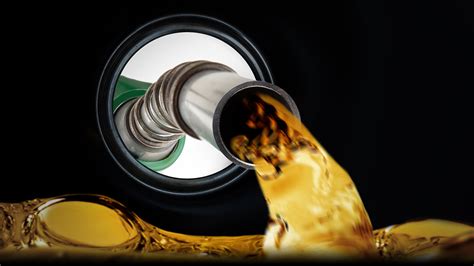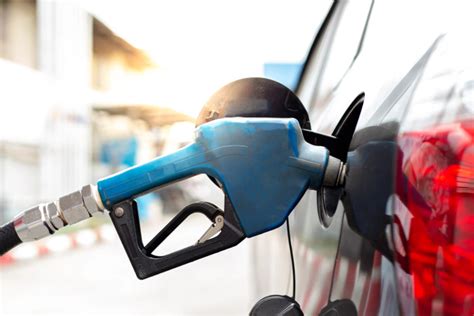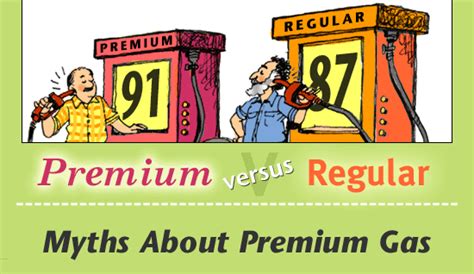Understanding Premium Fuel and Octane Ratings
The choice at the gas pump often presents a dilemma: regular, mid-grade, or premium? Many drivers wonder if shelling out extra for premium fuel offers tangible benefits, such as improved fuel economy (MPG) or enhanced engine health. To answer this, it’s essential to understand what premium fuel actually is and how it differs from regular.
The primary difference between regular and premium gasoline is its octane rating. Octane is a measure of a fuel’s resistance to pre-ignition, also known as “engine knock” or “pinging.” Higher octane fuel is more resistant to igniting prematurely under compression. Regular unleaded typically has an octane rating of 87, while premium often ranges from 91 to 93.

When is Premium Fuel Necessary?
The key to determining whether your vehicle needs premium fuel lies in your owner’s manual. Car manufacturers design engines to operate optimally with a specific octane rating. If your manual states “premium fuel REQUIRED,” then using anything less can lead to engine knock, reduced performance, and potential long-term damage. This is often the case for high-performance vehicles, sports cars, and luxury models, especially those with turbochargers, superchargers, or high compression ratios.
However, if your manual says “premium fuel RECOMMENDED” or simply specifies 87 octane, then using premium fuel offers little to no benefit. Modern cars are equipped with sophisticated engine control units (ECUs) that can detect knocking and adjust engine timing to compensate for lower octane fuel. While this prevents damage, it can slightly reduce peak performance and efficiency compared to what the engine would achieve with its recommended fuel.

Does Premium Fuel Improve MPG or Performance?
For vehicles that do not require premium fuel, using it will generally not improve your MPG or provide a noticeable boost in performance. Engines are designed and tuned to a specific octane. Putting higher octane fuel into an engine designed for 87 octane is like giving a healthy person an unnecessary vitamin shot – it won’t make them super-human. Your engine’s computer will simply detect the higher octane and make no adjustments, or only minimal ones that don’t translate into real-world benefits for a standard engine.
In fact, some tests have shown that for vehicles not designed for premium, using it can sometimes even lead to a slight decrease in fuel economy because the engine isn’t optimizing its combustion for that fuel type. The cost difference between regular and premium fuel significantly outweighs any perceived, but often non-existent, MPG gain.
Impact on Engine Health
If your car requires premium fuel, using it is crucial for engine health. Consistent use of lower-octane fuel in an engine designed for premium can lead to:
- Engine Knock/Ping: Pre-ignition can cause excessive stress on engine components.
- Reduced Performance: The ECU will retard ignition timing to prevent damage, leading to less power.
- Potential Long-Term Damage: Prolonged knocking can wear down pistons, valves, and other critical engine parts, potentially leading to costly repairs.
Conversely, if your car does NOT require premium fuel, using it will not magically “clean” your engine or extend its lifespan beyond what regular fuel would provide. All gasoline sold in the United States, by law, contains detergents and additives designed to keep your engine clean and prevent deposits. Premium fuels aren’t inherently “cleaner” or better for engines that don’t need them. The best way to maintain engine health is through regular maintenance, oil changes, and using the fuel type specified by the manufacturer.

The Cost-Benefit Analysis
Consider the cumulative cost. If premium fuel costs $0.50 more per gallon, and you fill up 15 gallons per week, that’s an extra $7.50 weekly, or approximately $390 per year. For a vehicle that doesn’t require premium, this money is essentially wasted and could be better spent on other maintenance items like tire rotations, oil changes, or simply saved.

Conclusion: Follow Your Manual
The definitive answer to whether you should pay for premium fuel boils down to one simple rule: consult your vehicle’s owner’s manual.
- If premium is REQUIRED: Use it. It’s essential for your engine’s performance, longevity, and to avoid costly repairs.
- If premium is RECOMMENDED: You can use it, and your engine will likely perform at its peak efficiency. However, using regular fuel will not harm the engine, though there might be a very slight, often imperceptible, dip in performance or MPG.
- If 87 octane (regular) is specified: Stick with regular. Premium fuel will offer no benefits in MPG, performance, or engine health, and will only result in higher fuel costs for you.
Don’t fall for marketing hype or common misconceptions. Your car’s manufacturer knows best what fuel it needs to run optimally and efficiently.





